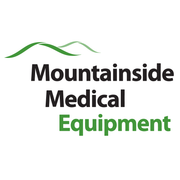
Mountainside Medical Blog- Latest Medical News and Trends
RSS-

-

-
 December 22, 2025 Mountainside Medical Equipment
December 22, 2025 Mountainside Medical EquipmentWhat Professional Athletes Should Know About Stem Cell Treatments
Read now -

-
 December 18, 2025 Mountainside Medical Equipment
December 18, 2025 Mountainside Medical EquipmentFive Must-Know Points about Stem Cell Treatments
Read now -


Quick Links

Company Info

Injectables
- Sodium Chloride
- Sodium Bicarbonate
- Diphenhydramine Injection
- Dexamethasone Injections
- Bupivacaine Injections
- Lidocaine with Epinephrine
- Ceftriaxone Injection
- Tubersol
- Sterile Water
- Atropine Sulfate
- Lidocaine & Local Anesthetics
- Flumazenil Injections
- Naloxone Injections
- Amiodarone Injections
- Caffeine Citrate
- Antibacterial Injections
- Calcium Gluconate Injections
- Corticosteroids Injections
- Estradiol
- Furosemide Injections
- Glucagon injections
- Haloperidol Injections
- Hyaluronidase Injections
- Immune Globulin Injections
- Kenalog Injections
- Leuprolide Acetate Injections
- Medroxyprogesterone Acetate
- Methylprednisolone Injections
- Metoprolol Tartrate
- Naltrexone Injections
- Norepinephrine Bitartrate Injections
- Ondansetron Injections
- Promethazine Injections
- Sodium Hyaluronate Injections
- Solu-Medrol Injections
- Synagis palivizumab
- Vitamin B Complex Injections
- Vitamins Injections
- Wegovy
- See more

Search By Profession
- Doctors
- Dentists
- Paramedic, EMT's
- Veterinarian
- Aesthetics
- Fertility Clinics
- Pharmacies
- Pulmonologist
- Ophthalmologists
- School Nurse
- Urologist
- Cancer Centers
- Dialysis Centers
- OBGYN
- Respiratory Therapist
- Anesthesiologist
- Addiction Recovery
- Laboratory Supplies
- Visiting Nurses
- Pediatrician
- Nurses
- Burn Center
- Nursing Homes
- Medical Examiner
- Sports Medicine
- Infection Control Nurse
- Wound Care Nurse
- Hand Therapist
- Hospitals
- Women's Health
- Tattoo Shops
- CSI
- Law Enforcement
- Mental Health
- Educators
- Physical Therapist
- Correctional Facilities
- See more







